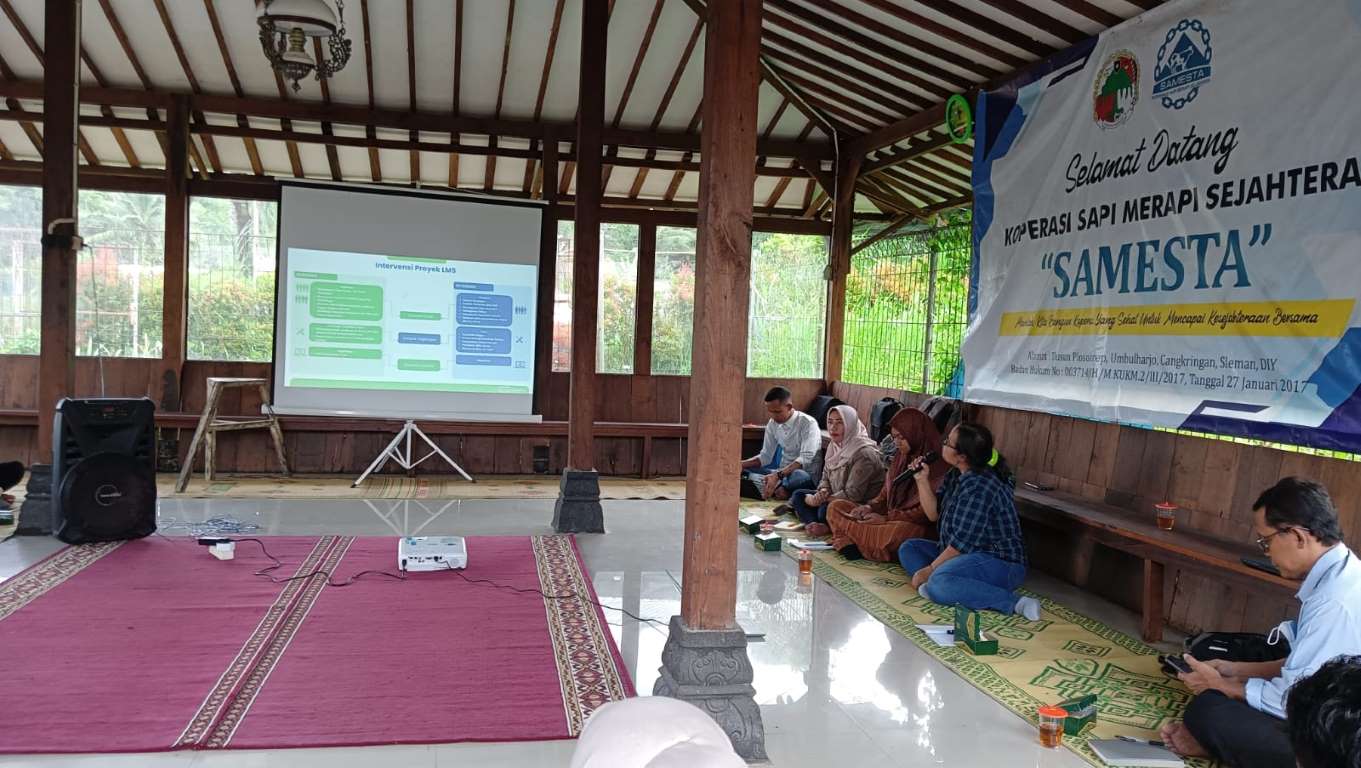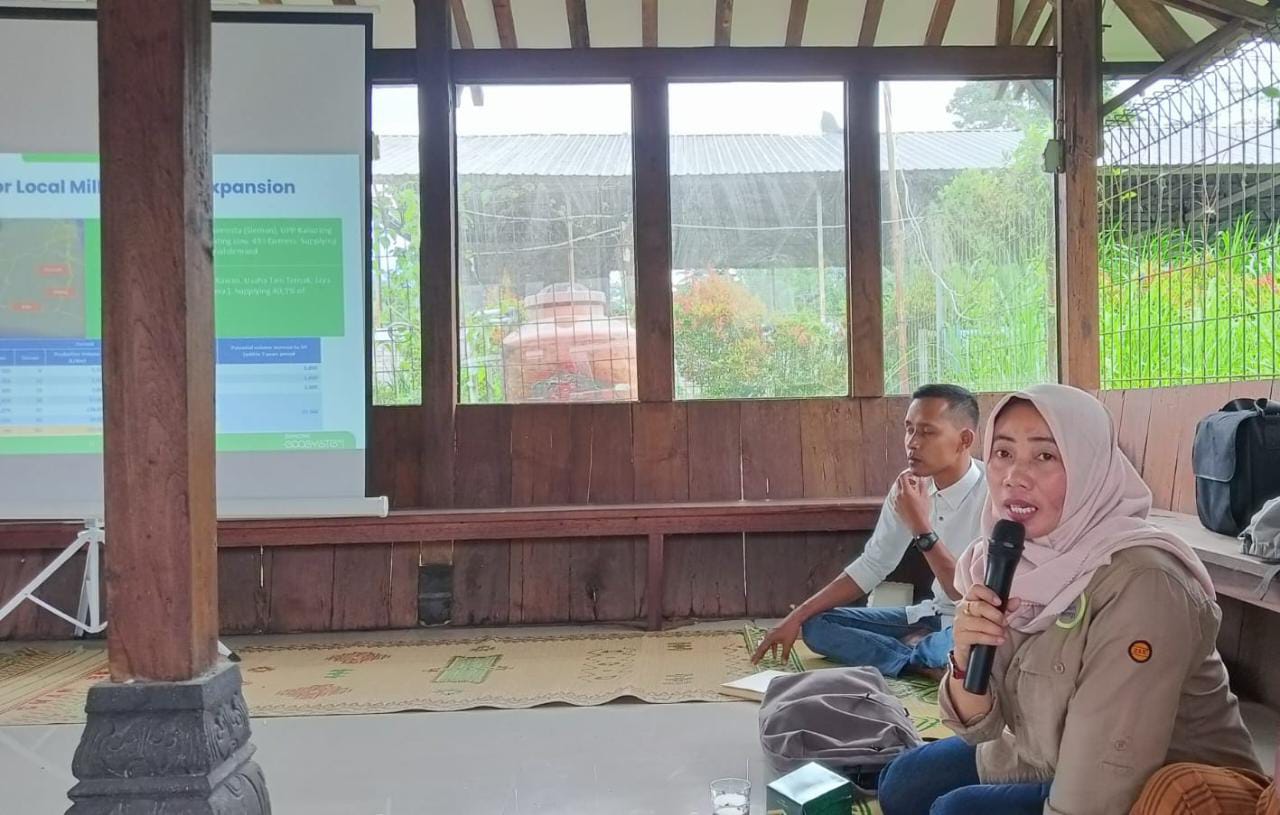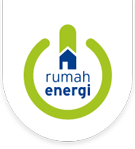Socialization of Local Milk Sourcing at the Samesta Cooperative and UPP Kaliurang

To increase national milk production and quality, Yayasan Rumah Energi Foundation (YRE) collaborated with Sarihusada, Danone Ecosystem, and PRISMA to implement the Local Milk Sourcing (LMS) project by collaborating with several cooperatives in Central Java and the Special Region of Yogyakarta (DIY). The LMS project aims to strengthen the resilience of local dairy farmers through Good Farming Practices, improve environmental management through biogas installations, and carry out small-scale pilot initiatives to improve farmers’ work efficiency in milk production and quality.
Some time ago, socialization activities were carried out as a first step in introducing the LMS project to two cooperatives, namely the Samesta Cooperative and UPP Kaliurang Cooperative. The activity was attended by administrators and representatives of breeders in the area of the two cooperatives with an agenda of introducing and explaining the program, identifying challenges in the field, and hearing the hopes of the breeders. In general, breeders and cooperatives enthusiastically welcome and hope to gain new knowledge with the LMS project. Several challenges are generally faced by breeders, including low milk prices, milk quality that does not meet factory standards, high production (feed) costs, poor quality seeds, forage production that is not optimal, and the low interest of young people to become breeders.

“We hope that there will be new knowledge or innovations, especially cattle breeds and the quality feed so that we can apply them to increase milk production on our farms so that we can improve our welfare,” said Mrs. Hartini, one of the breeders from the Samesta Cooperative.
From the interactive discussions during the socialization activities, several issues emerged and received special attention, such as decreased milk production due to the FMD outbreak, and some cows even experienced a loss of milk production which made the cows no longer productive. Then the problem of high feed prices, caused by feed sources that are quite far away or outside the area causes transportation costs to swell and has an impact on less than optimal feeding of livestock. Then, not to mention the low purchase price of milk which is affected by low milk quality due to inadequate feeding, which results in losses for farmers because income is not balanced with maintenance costs. In addition to issues related to livestock raising and milk prices, another issue that is no less important is the declining interest of young people to become cattle breeders due to the growing tourist attraction in the Merapi area. Young people are more enthusiastic about developing local tourism than becoming dairy farmers with the current challenges.
With the existence of LMS, farmers, and cooperatives hope that there will be positive changes in the dairy industry, especially in the field of management of livestock as a whole, so that the quality and quantity of milk production increase, and the welfare of farmers also increases according to the objectives of this program. In addition, it is hoped that there will be innovations that can answer existing challenges, especially in fostering interest in becoming breeders for young people.
Written by: Ellentika Damayanti
Edited by: Fauzan Ramadhan

